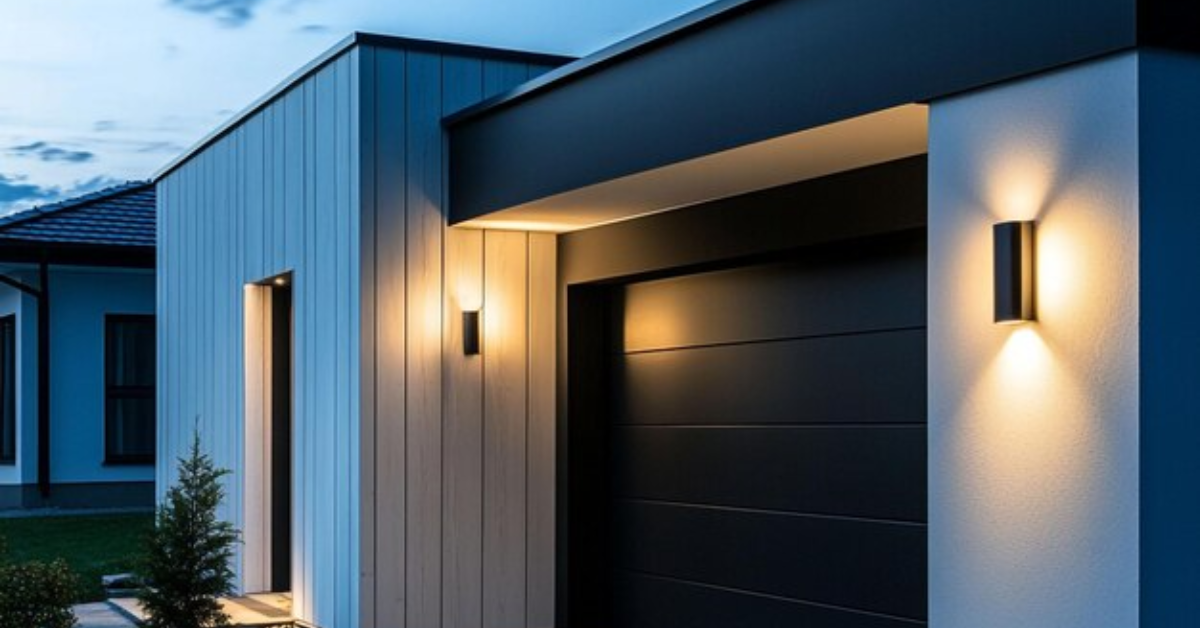Improve Security and Comfort with Insulated Garage Doors
For many homeowners, the garage is more than just a place to park the car—it’s a workshop, storage space, or even an entry point to the home. However, garages are often overlooked when it comes to comfort and energy efficiency. That’s where insulated garage doors come in. They not only improve your home’s comfort level but also enhance security and reduce energy bills.
In this article, we’ll explore how insulated garage doors work, their benefits, and why they’re worth the investment for any homeowner.
What Are Insulated Garage Doors?
Insulated garage doors are designed with layers of materials that create a thermal barrier, helping to maintain a consistent temperature inside your garage. Unlike standard doors that are typically made of a single metal sheet, insulated doors use multiple layers—usually steel or aluminum filled with insulating foam such as polyurethane or polystyrene.
This insulation minimizes heat transfer, keeping the garage warmer in winter and cooler in summer. As a result, your home’s overall energy efficiency improves, especially if the garage is attached to your main living area.
The Key Benefits of Insulated Garage Doors
1. Enhanced Energy Efficiency
If your garage shares walls or ceilings with your home, temperature fluctuations in the garage can affect the comfort of adjacent rooms. Insulated doors act as a protective layer, preventing outside air from entering and indoor heat from escaping.
By stabilizing the indoor temperature, you reduce the workload on your HVAC system. Over time, this leads to lower energy bills and a smaller carbon footprint—making insulated garage doors both eco-friendly and cost-effective.
2. Improved Home Security
Your garage is one of the most common entry points for intruders. Investing in energy-efficient garage doors doesn’t just improve comfort—it also strengthens your home’s defense.
Insulated doors are generally thicker, sturdier, and more durable than non-insulated ones. The additional layers of material make them harder to dent or break through, acting as a deterrent against potential burglars.
Modern insulated garage doors also come with advanced locking mechanisms, ensuring an extra layer of protection for your family and belongings.
3. Noise Reduction
Garages can be surprisingly noisy—whether from opening and closing the door, traffic outside, or power tools inside. Thanks to the multiple layers of insulation, noise reduction is one of the standout benefits of insulated garage doors.
The insulation acts as a sound barrier, absorbing and dampening vibrations. This makes your garage quieter and prevents outside noise from disturbing your indoor spaces. If you use your garage as a workspace or home gym, this is a major plus.
4. Increased Comfort Year-Round
Temperature control isn’t just about energy savings—it’s about comfort. Insulated garage doors help maintain a stable environment, making your garage usable all year long.
Whether it’s freezing cold in winter or blazing hot in summer, you’ll notice a significant difference. This is especially beneficial if you use your garage for hobbies, laundry, or as a home office. An insulated door helps you stay comfortable without needing extra heating or cooling.
5. Long-Term Durability
Insulated doors are built to last. The layered construction adds strength and rigidity, helping them withstand everyday wear and tear, including dents, weather conditions, and corrosion.
The added durability also means less maintenance over time. With proper care, an insulated garage door can last for decades, making it a smart long-term investment.
Types of Insulation Used in Garage Doors
Understanding insulation materials can help you make the best choice for your needs. There are two main types used in insulated garage doors:
Polystyrene Insulation
Polystyrene is a rigid foam panel that fits between the layers of the door. It’s cost-effective and offers decent insulation performance, typically rated by R-value (a measure of thermal resistance).
Polyurethane Insulation
Polyurethane foam is sprayed into the door’s panels, expanding to fill every gap. This provides higher R-values and better soundproofing. Polyurethane-insulated doors are denser and more energy-efficient than their polystyrene counterparts.
If you live in a region with extreme weather, polyurethane is generally the better option for superior insulation and durability.
Can An Existing Garage Door Be Insulated?
Choosing the Right Insulated Garage Door
When selecting an insulated garage door, consider these factors:
- Material: Steel doors offer the best strength and insulation combination, while wood adds a classic look but may require more upkeep.
- R-Value: Higher R-values mean better insulation performance. Aim for an R-value between 9 and 18, depending on your climate.
- Design and Finish: Today’s insulated doors come in various styles and finishes that can enhance your home’s curb appeal.
- Professional Installation: Proper installation is key. A poorly installed door can reduce the benefits of insulation and affect safety.
Cost vs. Value: Is It Worth It?
While insulated garage doors cost more upfront, they often pay for themselves through energy savings, increased comfort, and improved durability. Homeowners also enjoy added resale value since energy efficiency and modern security features are attractive to potential buyers.
Think of it as an investment rather than an expense—one that boosts both comfort and property value.
Maintenance Tips for Insulated Garage Doors
To keep your insulated door functioning efficiently:
- Clean the panels regularly with mild soap and water.
- Lubricate moving parts such as hinges, rollers, and springs every few months.
- Check weatherstripping for wear and tear, replacing it when necessary.
- Schedule annual inspections to ensure insulation integrity and smooth operation.
A little upkeep goes a long way in extending your door’s lifespan and maintaining performance.
What Is The Best Garage Door Insulation?
Conclusion
Insulated garage doors are a smart upgrade for any homeowner looking to enhance comfort, security, and energy efficiency. From reducing noise to improving durability, the benefits far outweigh the costs.
Whether you’re renovating or building a new home, investing in an insulated garage door adds value and practicality that lasts for years. It’s not just a door—it’s an essential part of a comfortable, secure, and energy-efficient home.
Frequently Asked Questions (FAQ)
Q1. Are insulated garage doors worth the cost?
A: Yes. They save energy, reduce noise, and improve comfort—making them a valuable long-term investment for homeowners.
Q2. Do insulated garage doors really make a difference in winter?
A: Absolutely. They help retain heat inside the garage and prevent cold air from entering, maintaining a more stable temperature.
Q3. Can I insulate my existing garage door?
A: Yes, insulation kits are available, but a professionally installed insulated door offers better performance and longevity.
Q4. How long do insulated garage doors last?
A: With proper maintenance, they can last 20 years or more, depending on material quality and environmental conditions.
Q5. What is the best insulation material for garage doors?
A: Polyurethane offers the best insulation value, strength, and noise reduction compared to polystyrene.




